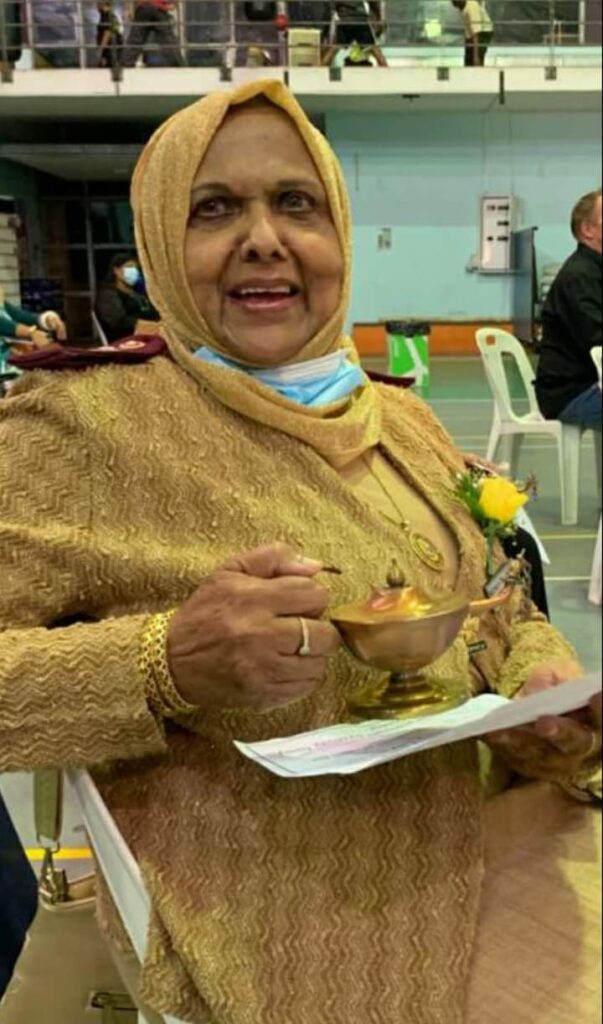
By Nabeelah Shaikh
South African Muslim nurses say they refuse to have their identities stripped from them and will continue to fight back against a proposed hijab ban while on duty.
The uproar came after a circular addressed to all provincial heads of the Department of Health, accompanied by an annexure listing the dress code for hospital staff stated that headscarves are not allowed to be worn while on duty.
The Islamic Medical Association has been strongly opposing the proposed dress code and is speaking out about how it will impact Muslim nurses.

Veteran nurse Haniefa Allee of the Islamic Medical Association said the circular was ridiculous and infringed on the basic human rights of Muslim nurses.
“The constitution states categorically that every person in South Africa will be allowed to practice their religion without any encumbrances, without any deviation, and without any harassment. This is what really upsets us. Why take away our identity? Why take away the essence of Islam? Why take away something that is of such significance to us?” questioned Allee.
Allee – who is the IMA’s Clinics Nursing Director – has faced many challenges and stood as a voice for other nurses through the decades.
“I was one of the first nurses for the RK Khan Hospital in Durban and everyone kind of knew me, including mothers, fathers, youth groups and parent bodies. I’ve been quite representative of nurses and nursing in South Africa. I was the first Indian nurse… or nurse of colour, to sit on the nursing board and to become the chairperson of the nursing board in KZN, and by virtue of that, I was on the national board of nursing” said Allee. She says through the years, this was sadly not the first time the dress code and hijab issue arose.
“About six years ago, nurses in the Midlands area in KZN, were experiencing the same issue and we fought it back then. The Department of Health has so many challenges. They are freezing posts. Nurses are leaving the profession and are leaving the country. There are so many important issues that need to be addressed and now they want to bring this in. Where are they going to get people from if you push away the skilled nurses with issues like this? It is no wonder the health department is the way that it is,” said Allee.
She said if the Department of Health was considering preventing nurses from wearing the hijab, this would also serve as a deterrent for many Muslim nurses to join the profession in future.
“It’s shocking that this could be proposed in this age and this time. We are supposed to be way past this level of thinking. The hijab or headscarf is part of our culture. It’s part of our identity, and it’s part of the essence of being a Muslim for us. Our basic human rights are being eroded and we will not accept this. It is part of our identity and our relationship with patients is so good when they see a nurse come in with a scarf. They want to actually talk to us, they feel confident around us and confide in us many times,” said Allee.
Allee pointed out that the most shocking part of this proposed dress code is that there is no legitimate reasoning behind why they would consider banning the hijab for nurses.
“There is absolutely no clinical or empirical evidence that the hijab or a scarf will spread infection. Nurses around the world wear scarves. And Muslim nurses make sure that they wash their hijab because they know about cleanliness. They wouldn’t want to be walking around with an unwashed hijab every day.”
Alee pointed out that many nurses across the country wear different forms of headgear and hair accessories. It is clearly double standards to claim that the hijab – which is always kept clean – is now seen as a problem.
Following the recent backlash over the proposed dress code, the Department of Health said it was re-evaluating the policy and nothing has been finalised.
Department spokesperson, Foster Mohale, said various stakeholders have shared their concerns regarding the policy, and their inputs are being taken into consideration.


